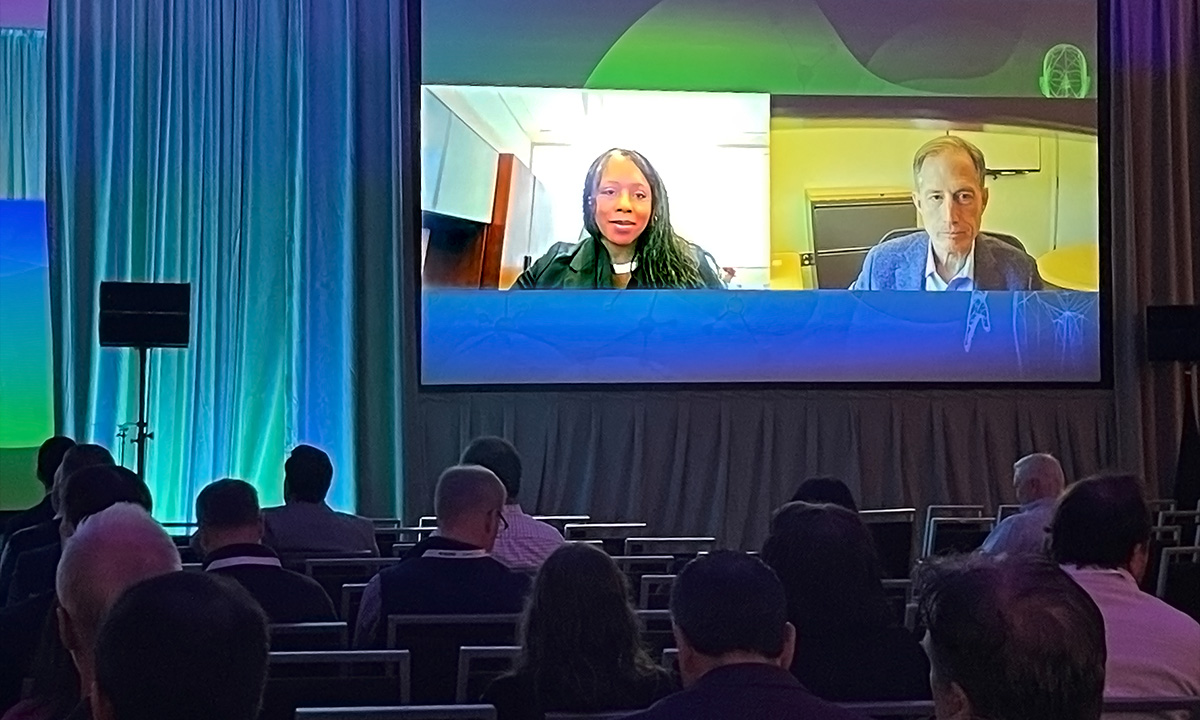
Michelle Tarver, MD, PhD, director of the FDA’s Center for Devices and Radiological Health (CDRH), and Jeff Shuren, MD, JD, CDRH director emeritus, appeared virtually at the Utah Life Sciences Summit.
Michelle Tarver, MD, PhD, and Jeff Shuren, MD, JD, appeared virtually to answer questions during a townhall session at the Utah Life Sciences Summit. The summit was held in Salt Lake City, Utah, on November 14, 2024.
Tarver, the new director of the FDA’s Center for Devices and Radiological Health (CDRH) following Shuren’s retirement, has spent more than 15 years in various roles at the FDA, including as deputy director of the Office of Strategic Partnerships and Technology Innovation and program director of Patient Science and Engagement.
“We’re laser focused on our mission and we, as an entire workforce, are continuing to look at how we can do our job better each day and making sure we uphold public health,” Tarver said. “We want to make sure that our staff are empowered and that our workforce is agile and adaptable so we can adjust to changing times.”
The summit provided an opportunity for companies and professionals engaged in the life sciences industry to connect and collaborate on key issues. During the townhall, questions from attendees ranged from subjects such as challenges to regulating artificial intelligence (AI), international regulations, access to care, supply chain issues, and representation of women and minorities in clinical trials.
In addressing the regulation of AI products, Tarver discussed the need to ensure that the data are validated and that AI continues to perform as expected after deployment. She also talked about how to address cycle management.
“We are thinking about that holistically,” Tarver said. “We understand that these software changes happen rapidly, and they’re iterative, and we can plan so that people don’t have to come to us each time to ask for a particular change.”
When asked about the challenges of going through multiple regulation processes to ensure innovations are available globally, Shuren discussed the increasing emphasis on international cooperation and standards.
“I’ve seen over time how important it is to engage with our partners in other countries to try to ensure that we have—if not fully harmonized—as converged approaches as possible, because it ultimately best serves people globally,” Shuren said.
Tarver mentioned the CDRH has issued templates to report the composition of clinical trial populations, creating what she referred to as diversity snapshots that will provide more transparency and increased ability to address gaps in care.
Tarver also described her work on the Home as a Health Care Hub initiative as one of her key accomplishments and said that a prototype will be ready next year.
Shuren spoke highly of Tarver and discussed working with her as one of the highlights of his tenure as director.
Although questions regarding the FDA’s final rule on laboratory-developed tests (LDTs) were not discussed during the session, ARUP closely follows any updates regarding the rule. You can find the latest information on our FDA LDT rule resource page.
Kellie Carrigan, kellie.carrigan@aruplab.com
















